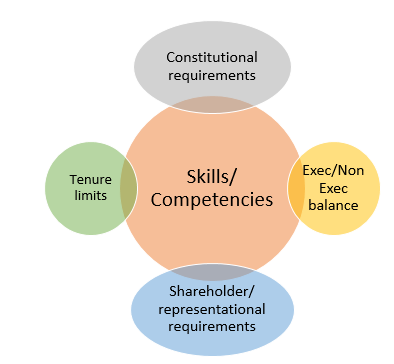The Day I Realized I Was Just Furniture
I remember starting out. Fresh faced, eager to please. I was invited to join a few cross-departmental committees—the “Future Vision Steering Group,” the “Quarterly Efficiency Review,” you know the drill. I thought, man, this is it. I’m moving up. I’m in the room where it happens.

What actually happened was I spent about 12 hours a week sitting in meeting rooms that smelled like stale coffee and regret. I was quiet. I was respectful. I was, frankly, useless. I’d walk in, sit down, listen to five senior managers argue about budget allocations that had nothing to do with my team, nod when the camera was on me, and then walk out having accomplished absolutely zero.
I tracked my time religiously for a month. I calculated that 40% of my week was tied up in discussions where my direct input was negligible, yet my attendance was mandatory. This wasn’t efficiency; this was corporate performance art. The real kicker? I had to work late every single time, scrambling to do the actual development work that paid my salary, because my entire day was eaten up by these endless loops of unproductive chatter.
I started getting grumpy. Really grumpy. My boss noticed. He wasn’t subtle about it either. He pulled me aside and said, “Look, you’re smart, but when you enter that room, you disappear. Why are you even there if you don’t talk?” That stung. But he was right. I was acting like a student in a lecture, not a committee member driving results.
I Stopped Being a Spectator and Started Controlling the Room
That conversation was the spark. I decided I wasn’t going to let these meetings steal my life anymore. If I had to be there, I was going to make sure that time investment paid off, not just for the company, but for my own damn workload. I sat down and started breaking down what made the effective people tick. They weren’t just the loudest; they were the most surgical.
I implemented three critical shifts in how I approached these committee commitments. I tracked them like a developer tracks bugs—did this action lead to a resolution? Yes or no?

Tip 1: Demanding the “So What?” Before Walking In
The first thing I changed was accepting a vague agenda. Previously, I’d get an email saying, “Review Q3 Strategy.” Now, I push back. Not rudely, but firmly. I started asking the chair or the organizer:
- “What specific decision needs to be made that requires my technical input today?”
- “What is the single most important output we are trying to achieve in this 60 minutes?”
I wouldn’t just read the provided documents; I would write down three critical questions or observations tied to those expected decisions and commit to introducing them within the first 15 minutes. This forced me to be proactive. If I couldn’t find a clear decision point, I challenged whether I needed to be there at all. Trust me, half the time, just asking the “So What?” made people realize they hadn’t planned the meeting properly.
Tip 2: Mastering the “Parking Lot” and Refocusing Drift
This was the hardest part for me because I hated interrupting people. But committee meetings are notorious for spiraling into unrelated anecdotes or nit-picking details. People start talking about something irrelevant, and 20 minutes fly by. I watched the clock like a hawk.
I taught myself the art of the gentle but firm redirection. As soon as I spotted the conversation veering off the path of the primary objective (my “So What?”), I would chime in. I started using phrases like: “That’s a critical point, but I suggest we put a pin in it and come back after we resolve X, otherwise we lose our momentum.” Or, “Just to bring us back to the original proposal…”
I wasn’t being aggressive; I was protecting the schedule. People were initially surprised, but quickly, they realized I was saving them from another hour of unnecessary discussion. I wasn’t just participating; I was managing the flow. I shifted from a receiver of information to a guardian of the timeline.

Tip 3: The Immediate Action Mandate
A meeting isn’t finished until the action items are assigned. I realized that a lot of committees just wrap up with “Okay, great discussion,” and then everyone forgets who promised what. I refused to let that happen anymore.
I started volunteering to draft the summary notes right there during the meeting, or immediately afterwards. Before the end of the session, I would dictate the final three takeaways back to the room: “So, to summarize, Jen will deliver the revised budget by Friday, Mike will draft the communication plan, and I am responsible for integrating the API changes next week. Does everyone agree?”
I forced verbal sign-off on commitments. This wasn’t about catching people out; it was about locking in value. If you leave without clearly assigned responsibilities and deadlines, that meeting was a coffee break, not a committee session. By doing this, I became the point person for clarity and follow-through, not because I was the most senior, but because I was the one making sure the work actually got done.
The Payoff: Less Time, More Clout
It didn’t happen overnight, but within three months, my meeting load actually decreased because people started respecting my time. They knew if I was invited, there was a specific reason, and that I would ensure the meeting delivered on its promise. I didn’t get rid of meetings entirely, obviously, but I turned 12 frustrating hours of wasted time into maybe 5 hours of highly focused, highly influential time.
My work life stabilized dramatically. I stopped having to stay late just to catch up on coding, and my visibility with the directors went through the roof. They weren’t praising me for being polite; they were praising me for being the person who actually closed loops and made decisions stick. It turns out, committee member skills aren’t about talking the talk; they’re about relentlessly driving the outcome.

